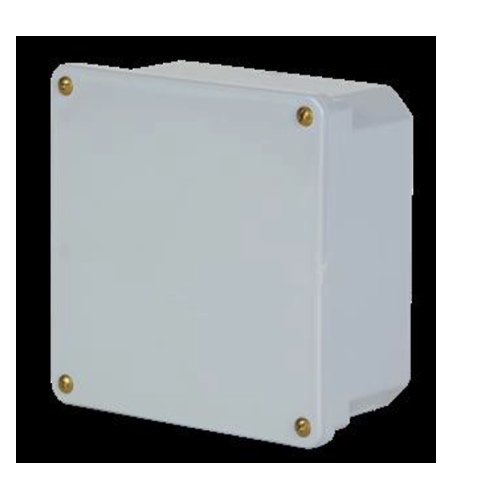PVC Enclosures

PVC electrical enclosures and junction boxes are designed to protect electrical components in industrial, commercial, and outdoor environments where corrosion resistance and durability are required. RSP Supply carries a full line of PVC enclosures that provide reliable protection for electrical and electronic equipment used in oil and gas facilities, wastewater treatment plants, power generation sites, and other harsh environments.
Constructed from polyvinyl chloride, these enclosures offer excellent resistance to acids, alkalis, salts, and other corrosive substances. PVC material withstands prolonged exposure to moisture, chemicals, and outdoor weather conditions without degrading, making it a dependable choice for both indoor and outdoor installations. These enclosures are commonly used to house control components, junction points, and communication equipment in environments where metal enclosures may corrode.
PVC enclosures combine strength and resilience, allowing them to withstand impacts and environmental stress while maintaining electrical insulation and non-conductive properties. Many PVC electrical enclosures are NEMA rated, including NEMA 4X options, providing protection against dust, debris, water ingress, and chemical exposure. This makes them suitable for demanding industrial applications where long-term reliability and environmental protection are critical.
FAQs
Q: Are PVC electrical enclosures suitable for oil and gas applications?
Yes, PVC electrical enclosures are commonly NEMA rated for oil and gas applications and provide resistance to chemicals, moisture, and harsh environmental conditions.
Q: What are PVC electrical enclosures used for?
PVC electrical enclosures are used to house and protect electrical and electronic equipment from environmental hazards such as corrosion, moisture, dust, and impact.
Q: Can PVC enclosures be used outdoors?
Yes, many PVC enclosures are designed for outdoor use and offer UV resistance and NEMA-rated protection against weather exposure.
Q: What are FD boxes, and where are they used?
FD boxes are weatherproof electrical outlet boxes designed for outdoor or harsh environments, but can also be used indoors where added durability and environmental protection are required.
Q: Are PVC enclosures conductive?
No, PVC enclosures are non-conductive, providing electrical insulation and preventing grounding to the enclosure while still offering secure equipment protection.
Why Buy PVC Electrical Enclosures from RSP Supply
RSP Supply offers a wide selection of PVC electrical enclosures designed for reliable performance in harsh industrial environments. These enclosures provide corrosion resistance, durable construction, and NEMA-rated protection for critical electrical equipment. Customers rely on RSP Supply for quality enclosure solutions, technical expertise, and dependable products that support long-term industrial operation.

